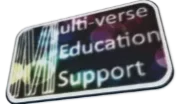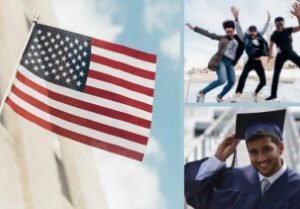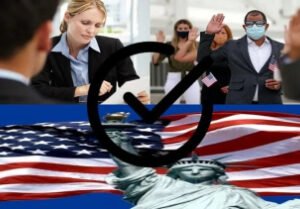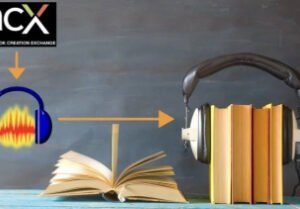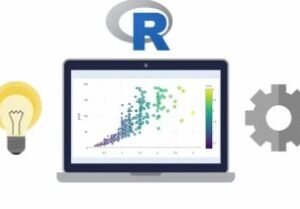The F-1 Student Visa Training Course Access Packet
- Description
- Curriculum
- FAQ
- Reviews
The F-1 is the student visa and allows you to come to the U.S. for a very short period or a very long period depending on how long the educational course is. In fact, you can come to the U.S. for a several week English as a second language course (ESL) to getting a Ph.D which would take many years. However, there are many issues to preparing it properly and having a better chance of success.
However, if done properly, you will be able to get a very good U.S. education and your spouse and children can come to the U.S. on derivative F-2 Visas.
Obtaining an F-1 student visa is essential if you want to study in the United States. Ensure that you meet all the requirements before applying and have all necessary documentation. With an F-1 visa, you can pursue an academic course of study at a USCIS- accredited academic institution in the US and enjoy practical training or change to other work visas after completing your educational program.
Come learn with Atty. Lerner and find out how to do the F-1 Visa can be obtained either law students or visa applicants are welcome.
-
1IntroductionText lesson
-
2Introduction to the F-1 how you can come to the U.S. to studyVideo lesson
The F-1 visa is the appropriate selection for academic study, while the M-1 visa is for vocational or non-academic training. To be eligible for either visa category, you must be accepted by a school, have sufficient funds to support yourself, be prepared for your course of study, and have the intention to leave the US at the end of your studies. Academic institutions such as universities, high schools, and language schools are approved for F-1 students, while vocational high schools and institutions offering vocational or non-academic training are approved for M-1 students. It is best to apply for your visa 120 days before your program start date, but you can enter the US up to 30 days before your program starts. If you need to enter the US earlier, you may do so under the VWP or B-2 visa. If you are eligible for the visa for which you would like to change, changing status while on an F-1 or M-1 visa is also allowed
To obtain an F-1 student visa, foreign nationals who have a residence in their home country, are qualified and intend to pursue an academic course of study at a USCIS-accredited academic institution in the US can apply. You must have a valid educational reason for coming to the US, proficient in English or get trained to be so, have enough funds to support yourself and not accept unauthorized employment while studying. After completing your educational program, you may request a work authorization period for practical training or change to a temporary non-immigrant work visa or permanent resident visa.
In conclusion, obtaining an F-1 student visa is essential if you want to study in the United States. Ensure that you meet all the requirements before applying and have all necessary documentation. With an F-1 visa, you can pursue an academic course of study at a USCIS- accredited academic institution in the US and enjoy practical training or change to other work visas after completing your educational program. (#F1Visa #StudentVisa #F-1 #F1)
-
3More Specifics on Applying for the F-1Video lesson
The F-1 visa application process is an essential step for international students who wish to study at a US institution. The F-1 visa is a non-immigrant visa that enables students to stay in the US and study. The first step in the F-1 visa application process is to find a SEVP-certified institution and ensure that the student is enrolled full-time with sufficient funds. After graduation, students may apply for Optional Practical Training (OPT), which provides them with work opportunities in the US. To apply for an F-1 visa, one must pay the SEVIS fee, complete the DS-160 application, schedule a visa interview, and attend the interview. In addition to this, individuals who want to change their nonimmigrant status to F-1 status must file Form I-539 and pay the USCIS filing fee. However, applicants must also be eligible for F-1 status and maintain valid status at the time of application. Changes of status can take many months to process, and international travel is prohibited during this time. It is crucial that individuals consult a qualified immigration attorney before considering changing their status.
International students hoping to study in the US should be aware of the F-1 visa application process and its requirements. It is essential to follow the process diligently and ensure that all documents and payments are submitted on time. By doing so, students can maximize their chances of obtaining an F-1 visa and pursuing their academic goals in the US. (#MoreSpecifics #F1Students #ImmgrationLaw #VisaForStudents)
-
4How the 'M' can also be applied for instead of the 'F'Video lesson
International students who are interested in pursuing flight training in the US may have heard of the F-1 visa, which is commonly associated with academic programs. However, there is another visa option available for those seeking vocational or non-academic training - the M-1 visa. Flight schools such as Helipro and DCT Aviation are approved to offer M-1 visas for international students interested in helicopter and pilot training programs. The application process for an M-1 visa requires several steps, including TSA approval and clearance from the Student and Exchange Visitor Program (SEVP). The advantage of obtaining an M-1 visa is that it allows international students to pursue vocational training in the US, which can lead to potential employment opportunities after graduation. It is important for students to research and compare visa options to determine which one is best suited for their educational and career goals. (#M1Visa #F1Visa #TrainingVisa #ImmigrationLaw)
-
5Other items the F-1 allowsVideo lesson
As an F-1 visa holder, there are certain activities that you are allowed to do while in the United States. One of the limitations on the use of funds for overseas fellowships is that before awarding a fellowship for use outside the United States, an F-1 student must be enrolled and in good standing in a graduate program in the United States. Additionally, funds awarded under this part may not be used for the training of students and teachers.
It is important to note that there are also limitations on the displacement of U.S. workers by H-1B workers under the H-1B program. This prohibition mainly applies to H-1B-dependent employers, willful violator employers, and employers receiving funding described in the Employ American Workers Act. Employers can face fines up to $35,000 and potentially be debarred for willful violations. Before placing an H-1B worker with a secondary or other employer, it is required to inquire whether a U.S. worker has been displaced. Furthermore, other federal laws protect U.S. workers from discrimination.
While there are certain limitations on what F-1 visa holders are allowed to do, there are still plenty of opportunities to explore and take advantage of during your time in the U.S. It's important to stay informed about all the regulations and restrictions in order to have a successful and fulfilling experience while studying abroad. (#WorkingWhileInF1 #F1Opportunities #F1Visa #StudentVisa)
-
6Running your own business while on the F-1 OPTVideo lesson
As an F-1 visa holder, it is possible to run your own business while on the F-1 OPT. According to a presentation by MIT's International Students Office, running a business is considered employment, and F-1 OPT or STEM OPT can serve as a bridge towards establishing a business. Regular OPT allows for 12 months of employment authorization, either pre- or post-graduation. However, it is important to note that the F-1 visa is intended for foreign students pursuing academic studies, so running a business on the side should not interfere with their studies.
When it comes to starting a business, having a trusted outside general counsel is crucial. Xu Law Group provides business law services to entrepreneurs, startups, and international companies. They specialize in helping immigrant-founded high-tech startups establish and scale in the United States. Their services include incorporation, intellectual property protection, commercial contracts, financing activities, shareholder structuring, and more. Additionally, they provide ongoing legal support, general counsel, and fundraising assistance. They offer their services in various areas of practice, including non-fungible tokens, mergers and acquisitions, non-profit organizations, food and beverage businesses, and more.
It is important to note that the rules and regulations surrounding F-1 visa holders starting their own businesses can be complex and nuanced. Seeking legal advice from a trusted source is highly recommended to ensure compliance with all relevant laws and regulations. (#F1Business #Business #F1Application #F1OPT)
-
7Trump DROPS Opposition to Online Only F-1 Schools. Now F-1 Students do not needVideo lesson
The Trump administration recently announced that it would no longer force foreign students to attend in-person classes in order to remain in the United States, bringing an end to a legal battle with universities across the country. This decision came after several higher education institutions, led by Harvard and MIT, sued the government, arguing that the policy unfairly targeted foreign students and could force schools to reopen their campuses against their wishes during the COVID-19 pandemic. While this reversal has been celebrated, many experts warn that foreign students may still face struggles due to US consulate closures, travel bans, and other difficulties.
The US Department of Homeland Security has rescinded a policy that required international students to take in-person classes or leave the country, instead reverting to the guidance issued in March that allows international students to remain in the US while taking a fully online curriculum. Typically, federal regulations restrict international students from taking more than one online class at a time. In March, as colleges shifted to online learning due to the pandemic, the government temporarily eased these restrictions. However, on July 6th, the government issued a directive that would have barred international students who only took online courses from staying in the US. This decision was met with widespread criticism and resulted in Harvard University and MIT filing a lawsuit against the directive.
While the Trump administration's decision to drop its opposition to online classes for F-1 schools is a positive step forward, there are still concerns about the challenges facing international students during this difficult time. Many foreign students are struggling with US consulate closures and travel bans that make it difficult for them to return home or come to the US. Additionally, some universities are facing financial difficulties due to the pandemic and may not be able to support international students as they have in the past. As we navigate this uncertain time, it is important that we continue to support and advocate for all students, regardless of their nationality or immigration status. (#TrumpRuling #TrumpLaw #F-1OnlineSchool #FightTrump)
-
8Trump now goes against F-1 Students in an attempt to further attack any immigranVideo lesson
President Donald Trump has been known for his efforts to limit immigration, and his latest attack has been on F-1 international students. On July 6, the Trump administration announced that international students taking entirely online courses would face deportation. This was followed by new regulations that prevented foreign students from entering the US if the courses they were enrolled in for the fall semester were held entirely online to limit the spread of COVID-19. This move has been criticized by immigration advocacy groups, with Harvard University President Lawrence Bacow and Vice Provost for International Affairs Mark Elliott lobbied lawmakers and sent letters to Trump administration officials appealing for visa protections for international students.
Trump's efforts to limit immigration have impacted American higher education by restricting entry from certain countries and making it harder to obtain work permits. The Optional Practical Training (OPT) provision of F-1 visas, which allows international students who receive STEM degrees to apply to stay in the US for up to three years post-graduation, has also been targeted by the Trump administration. The program is widely popular, but critics argue that it goes beyond the legal definition of F-1 student visas. Bacow has warned that the loss of OPT threatens Harvard's ability to enroll the best and brightest.
For foreign students already studying in the US and whose courses have been moved entirely online due to the pandemic, they will have to transfer to a school that has opened its campus or leave the country and take online courses from abroad. If a resurgence in COVID-19 cases forces schools to switch from a hybrid model to completely online instruction, schools fear these foreign students will have to leave the country during the semester. Many New Jersey schools, such as Princeton and Rutgers, plan a hybrid schedule, with the vast majority of classes online.
The Trump administration's policies have been criticized for harming American higher education and causing distress to international students. The abrupt announcement regarding F-1 students taking entirely online courses has left many students uncertain about their future, and the lack of clarity has created anxiety and stress among them. While the pandemic has created many challenges for universities and colleges, Trump's policies have made it even more difficult for international students to pursue their education in the US.(#F1Attack #TrumpAttack #F-1 #StudentsVisa)
-
9F1 and I-130Video lesson
If you have applied for an I-130 petition for a family member and the petition is still pending, you may also apply for an F-1 visa to pursue your studies in the United States. The USCIS allows applicants to change their status to a non-immigrant F or M student status. However, if your change of status application to F-1 non-immigrant student is still pending within 30 days of your F-1 program start date, you may not be able to enroll in classes until your application is approved. On the other hand, if your I-130 petition has already been approved, you may choose to file Form I-485 to apply for a Green Card and become a lawful permanent resident.
Additionally, USCIS is currently offering a fee exemption until September 30, 2023, to those filing Form I-130 on behalf of their Afghan national relative whose country of birth is not Afghanistan. If you are eligible for this exemption, you must write "OAW" at the top of your form. If your relative isn't eligible for the Green Card by Form I-485, they may file an immigrant visa with the U.S. Department of State at the U.S. embassy or consulate. Remember that the process of obtaining an F-1 visa or a Green Card can be complex and time-consuming, so it's important to seek legal advice and guidance to ensure your application is filed correctly and on time. (#PendingI-130 #StudentToImmigrantVisa #NonImmigrantIntent #ImmigrationProcess)
-
10Working outside Campus while on an F-1Video lesson
Working outside school campus while on an F-1 visa is subject to strict regulations and requires prior approval from the U.S. Citizenship and Immigration Services (USCIS). F-1 visa holders are generally allowed to work off-campus only under specific circumstances, such as through Curricular Practical Training (CPT) or Optional Practical Training (OPT). CPT permits students to engage in work directly related to their field of study as part of their curriculum, while OPT provides temporary employment authorization for up to one year (12 months) after completing their academic program.
Obtaining approval for off-campus work is a detailed process that involves collaboration with the designated school official (DSO) and adherence to specific eligibility criteria. F-1 students must maintain good academic standing and receive proper authorization before commencing any off-campus employment. Violating the terms and conditions of employment could lead to severe consequences, including termination of the F-1 status and potential deportation from the United States.
International students must remain vigilant in understanding and adhering to the regulations surrounding off-campus work opportunities to ensure compliance with U.S. immigration laws. By doing so, they can make the most of their educational journey in the United States while gaining valuable professional experience in their chosen field.
-
11Change of Status F-1 to H4Video lesson
Attempting to change from an F1 visa to an H4 visa for one's spouse while in the process of transferring from an H1B visa is a complex situation. While it may seem like a viable option, it is important to consider the implications and potential challenges that may arise. The fact that the individual already has the 539 Form is just one aspect of the situation, and there are other factors that need to be taken into account.
Firstly, it is crucial to understand that changing from an F1 visa to an H4 visa typically requires the individual to have a valid reason and meet specific eligibility criteria. This process involves filing the appropriate forms and providing supporting documents to demonstrate the need for the visa change. However, attempting such a change while in the midst of an H1B transfer can complicate matters further.
Moreover, it is important to note that attempting to navigate this situation may not be advisable. The complexities involved in both the H1B transfer and the F1 to H4 visa change can lead to delays, confusion, and potential issues with immigration authorities. It is essential to consult with an experienced immigration attorney who can provide guidance and insight into the best course of action.
In conclusion, while it may be tempting to pursue a change from F1 to H4 visa for a spouse while in the process of an H1B transfer, it is essential to consider the complexity of the situation. The 539 Form is just a part of the overall equation, and there are other important factors to consider. Seeking professional advice is highly recommended in such circumstances to ensure a smooth and legally compliant transition.
-
12You must have intent to return to home country on F-1.Video lesson
If an individual was denied a visa due to section 214(b) and is now considering applying for another F1 visa in a different country, it is crucial to provide hard evidence of their intent to return to their home country. This evidence is necessary to convince the consular officer that the applicant has strong ties to their home country and will not overstay or violate the terms of their visa.
One way to demonstrate the intent of returning home is by showcasing strong family ties, such as owning property or having immediate family members living in the home country. This can be supported by providing official documents, such as property deeds or birth certificates, to strengthen the case.
Additionally, showing proof of employment or educational opportunities in the home country can serve as evidence of the applicant's intention to return. Providing employment contracts, acceptance letters from educational institutions, or enrollment certificates can help establish the applicant's commitment to their studies or work in their home country.
Furthermore, demonstrating financial stability and ties to the home country can be crucial in convincing the consular officer. This can be achieved by presenting bank statements, investment portfolios, or proof of business ownership in the home country. Such evidence shows that the applicant has significant financial interests and obligations in their home country, further establishing their intent to return.
In conclusion, if an individual has been denied a visa under section 214(b) and wishes to apply for another F1 visa in a different country, it is essential to provide hard evidence of their intent to return to their home country. This can be achieved through showcasing strong family ties, employment or educational opportunities, and financial stability in the home country. By presenting these compelling pieces of evidence, the applicant can increase their chances of a successful visa application.
-
13F1 to H4 change of status is possibleVideo lesson
If an individual was denied a visa due to section 214(b) and is now considering applying for another F1 visa in a different country, it is crucial to provide hard evidence of their intent to return to their home country. This evidence is necessary to convince the consular officer that the applicant has strong ties to their home country and will not overstay or violate the terms of their visa.
One way to demonstrate the intent of returning home is by showcasing strong family ties, such as owning property or having immediate family members living in the home country. This can be supported by providing official documents, such as property deeds or birth certificates, to strengthen the case.
Additionally, showing proof of employment or educational opportunities in the home country can serve as evidence of the applicant's intention to return. Providing employment contracts, acceptance letters from educational institutions, or enrollment certificates can help establish the applicant's commitment to their studies or work in their home country.
Furthermore, demonstrating financial stability and ties to the home country can be crucial in convincing the consular officer. This can be achieved by presenting bank statements, investment portfolios, or proof of business ownership in the home country. Such evidence shows that the applicant has significant financial interests and obligations in their home country, further establishing their intent to return.
In conclusion, if an individual has been denied a visa under section 214(b) and wishes to apply for another F1 visa in a different country, it is essential to provide hard evidence of their intent to return to their home country. This can be achieved through showcasing strong family ties, employment or educational opportunities, and financial stability in the home country. By presenting these compelling pieces of evidence, the applicant can increase their chances of a successful visa application.
-
14Unlawful Presence on the F-1Video lesson
For F-1 visa holders, maintaining legal status is crucial. Violating the terms and conditions of the F-1 visa could lead to accruing "unlawful presence" from the time of the violation. This could result in the termination of a student's F-1 SEVIS record and status. To regain F-1 status, a student has two options: apply for reinstatement through USCIS or travel and re-enter with a new F-1 I-20. Reinstatement applications have specific criteria, such as pursuing a full-time course of study, not engaging in unauthorized employment, and not being out-of-status for more than five months.
If the reinstatement is approved, the prior status is regained. However, if denied, the student risks accruing unlawful presence. Alternatively, travel and re-entry require obtaining a valid F-1 visa, a new I-20, and SEVIS number and paying a new SEVIS I-901 fee. It's crucial to keep in mind that accruing unlawful presence could lead to severe consequences such as being barred from entering the US for a certain period of time. Therefore, it's essential for F-1 visa holders to maintain their legal status and comply with the regulations to avoid accruing unlawful presence.(#F1ChangeStatus #ChangeStatus #StudentVisa #UnlawfulPresence)
-
15Changing your status to F-1Video lesson
Changing status from F-1 visa to another immigration status is a common process for international students in the United States. One of the most popular options is changing to an H-1B work visa after completing their studies. The process involves finding an employer willing to file the H-1B petition, beating the H-1B cap, and having the employer file the petition. However, getting a job offer does not guarantee selection in the H-1B lottery. To start the process, students must prepare and submit an I-539 Application to Extend/Change Status along with the H-1B petition.
For student-athletes who compete with their national team but train in the US, changing status from F-1 to P-1 or O-1 visa status can extend their stay in the country after completing their college sports career. The P-1 visa is easier to obtain and requires previous experience with an NCAA team, international rankings, national/international awards, expert support letters, and inclusion in international publications. It requires a competition schedule for the duration of the visa. The O-1 visa is more difficult to get but provides greater work flexibility and allows visa holders to monetize their skill sets more than the P-1. Visa holders must prove eligibility by meeting subjective requirements and must not interfere with the visa's underlying activity. Both visas have options to support families.
Overall, it is essential to understand the requirements and eligibility criteria for changing immigration status before starting the process. Seeking advice from an experienced immigration attorney can help students make informed decisions and avoid common pitfalls. By following the proper procedures and guidelines, students can successfully change their status and continue to pursue their goals in the United States.(#ChangeOfStatus #VisaApplication #DifferentTypeOfVisa #StudentToEmploymentVisa)
-
16Unlawful Presence and Being Out of StatusVideo lesson
The F-1 ruling is an important aspect of US immigration law that pertains to foreign nationals seeking to study in the United States. According to USCIS, foreign nationals must be lawfully admitted to the country and maintain their current status to change from one visa classification to another, including F-1 student status. However, F-1 students may not engage in any student activities until 30 days before their academic program begins. USCIS defines the nonimmigrant student's "duration of status" and the period between approval and the program start date as falling within the provision of "pursuing a full course of study." If a change of status is not approved before the program start date, the applicant must request to defer the program start date in the SEVIS before the current program start date has been reached.
It is crucial for F-1 students to maintain lawful status while studying in the United States. Unlawful presence occurs when a noncitizen stays in the US without being admitted or paroled, or exceeds the period of stay authorized by the DHS secretary. Noncitizens who accrue unlawful presence are inadmissible, except for certain exceptions such as asylees, minors, or those protected under the Family Unity program or Violence Against Women Act. Trafficking victims or battered spouses and children are also exceptions to this rule. However, circumstances where a noncitizen may be considered to be in a "period of stay authorized" even if their lawful status has expired or they entered without admission or parole are also taken into account.
In conclusion, foreign nationals seeking to study in the US on an F-1 visa must adhere to strict regulations and maintain lawful status. The F-1 ruling is designed to ensure that students have a clear understanding of their obligations and responsibilities while studying in the United States, including maintaining lawful status and adhering to all applicable regulations. (#F1ChangeStatus #ChangeStatus #StudentVisa #UnlawfulPresence)

